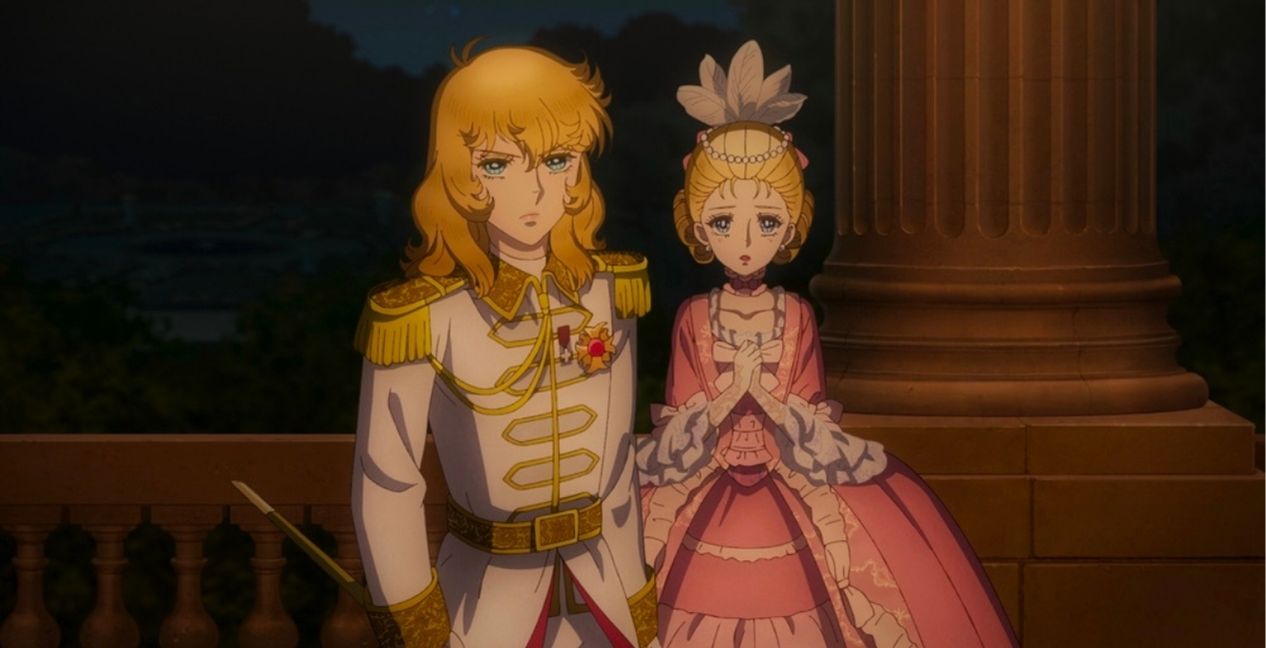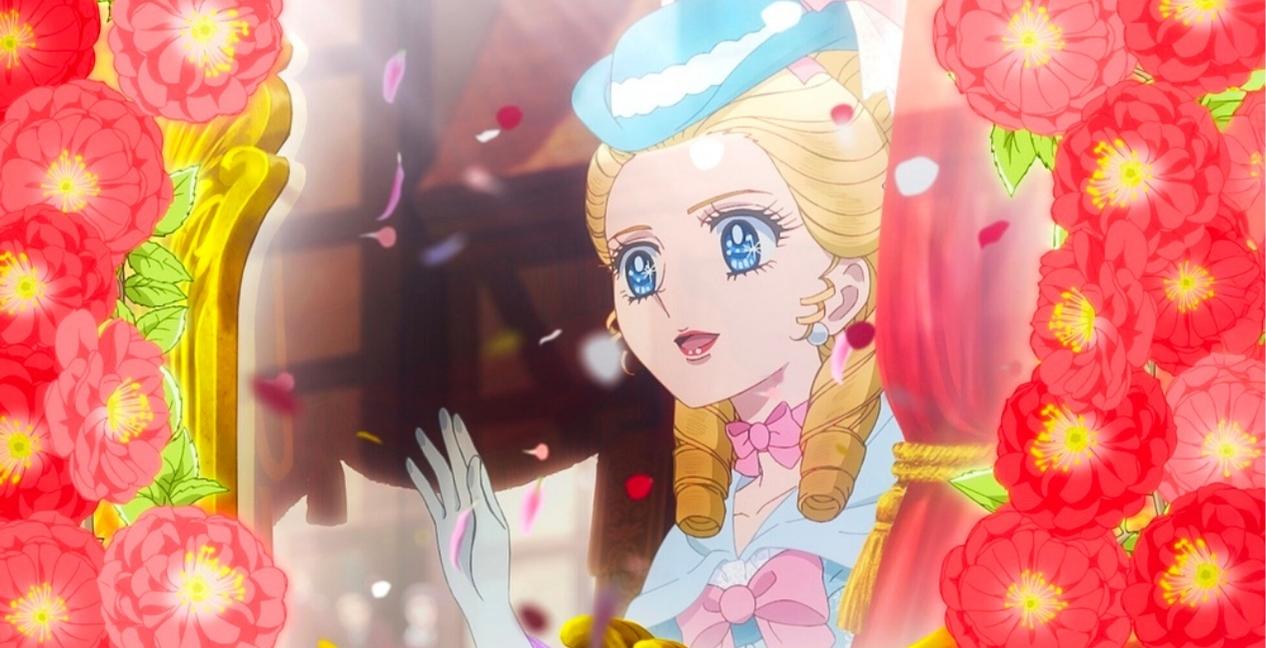The Rose of Versailles, produced by MAPPA and based on the manga by Riyoko Ikeda, tells the story of Oscar Francois de Jarjayes (Miyuki Sawashiro, Fire Emblem: Engage), a woman who serves in the French Royal Guard as the sworn protector of the future queen, Maria Antoinette (Aya Hirano, Dragon Ball DAIMA). As France tumbles towards revolution, Oscar and those around her will be trapped in far more intimate struggles of the heart.
The first time the manga was adapted, it was into an anime series that lasted 41 episodes. That this version attempts to tell the same story in a two-hour movie feels bold, to say the least. While big swings can pay off in storytelling, The Rose of Versailles fails to harness its tale’s potential, leaving behind a rushed plot that doesn’t do its characters justice.
This adaptation was bound to be hurried, but the problems quickly emerged in the movie’s first act. Most of the opening scenes barely show Oscar, instead choosing to focus on Antoinette as she grows accustomed to life in Paris. This mostly feels wasted as Antoinette’s actions have little relevance to Oscar’s story. All the plot gains from this opening are more romantic tension and heartbreak.
This could’ve been achieved without putting so much spotlight on the would-be queen. Focusing on Oscar, the lady’s near-constant shadow, could’ve helped the audience learn about the central character better while still exploring Antoinette’s struggles.
The Rose of Versailles flounders under its lack of balance, focus, and pacing.

This focus feels like a waste of time and creates a disconnect in the middle of The Rose of Versailles‘ story. As the narrative abruptly shifts from Antoinette to Oscar, the queen nearly completely vanishes from the film, making it like a second movie is spliced onto the first.
This opening deserves praise for its portrayal of France’s queen. Frequently vilified, the film makes a point to showcase that Antoinette is not so much cruel as just out of touch. As someone sheltered from the real world amid the opulence of Versailles, she cannot comprehend just how bad things have gotten. She is seen disregarding Oscar’s concerns about her spending, so she isn’t completely blameless, just not monstrous either.
Once the narrative baton is passed to Oscar, The Rose of Versailles manages to find its footing, to a point. Oscar is a strong lead who would be stronger if the movie focused solely on her. Her struggles in love, familial responsibility, and duty to France make for a captivating narrative. The story allows Oscar to be a wonderful blend of incredible strength and empathetic vulnerability.
Unfortunately, too many scenarios that bring out these elements in the lead don’t have enough time to cook. The situations that challenge Oscar come and go at such a rapid clip that they leave little individually to impact on the story in the moment. It quickly becomes obvious why the story was initially brought to life as a TV series.
The one silver lining to the frantic pace of the plot is the ending. Culminating at the historic storming of the Bastille, Oscar leads a force of French Guards to aid her countrymen. The strain of duty and the toll of all that has come before feel amplified by how much has happened in the film. After shot after shot after shot has been taken against her in what feels like a short time, the film, in actuality, spans 20 years of French history and adds considerable weight to the character.
The visuals do a lot of heavy lifting, but can’t mask the narrative’s flaws.

A few scenes do manage to land their emotional moments well. Moments of triumph and tragedy come through, imparting their importance onto the narrative in clear and occasionally powerful ways. A couple of particularly poignant moments for Oscar manage to land thanks to strong voice work and excellent visual presentation. When The Rose of Versailles doesn’t opt to utilize one of its many poorly implemented montage sequences, that is.
These musically driven montages often try to fill in the gaps in the story, developing characters through their collections of fleeting moments, and ending with a pop. However, this never succeeds. The elements that the film tries to convey in this way need far too much detail to bear fruit. A montage can be great for developing what has already been well-established, but here it tries to establish and develop, and it cannot manage.
The moments that do land are helped greatly by the visuals. Leaning heavily on the shojo manga style of its source material, The Rose of Versailles brings the drama to life wonderfully. From romantic moments to the tragedy of loss and even the overwhelming extravagance of Versailles itself, the visuals fuel the drama and skillfully set the scene.
The Rose of Versailles does its best to condense its narrative into a two-hour movie, but complex characters and unrequited love need time to build. Sadly, this film is more like an anime recap movie than a full feature, and not even a good one at that. If the original series had come out in the average fan’s lifetime, this might serve as a nice refresher, but as a first experience, it is a hard pass.
The Rose of Versailles is streaming now on Netflix.
The Rose of Versailles (2025)
-
Rating - 3.5/103.5/10
TL;DR
The Rose of Versailles does its best to condense its narrative into a two-hour movie. Sadly, the film is more like an anime recap movie than a full feature, and not even a good one at that.







